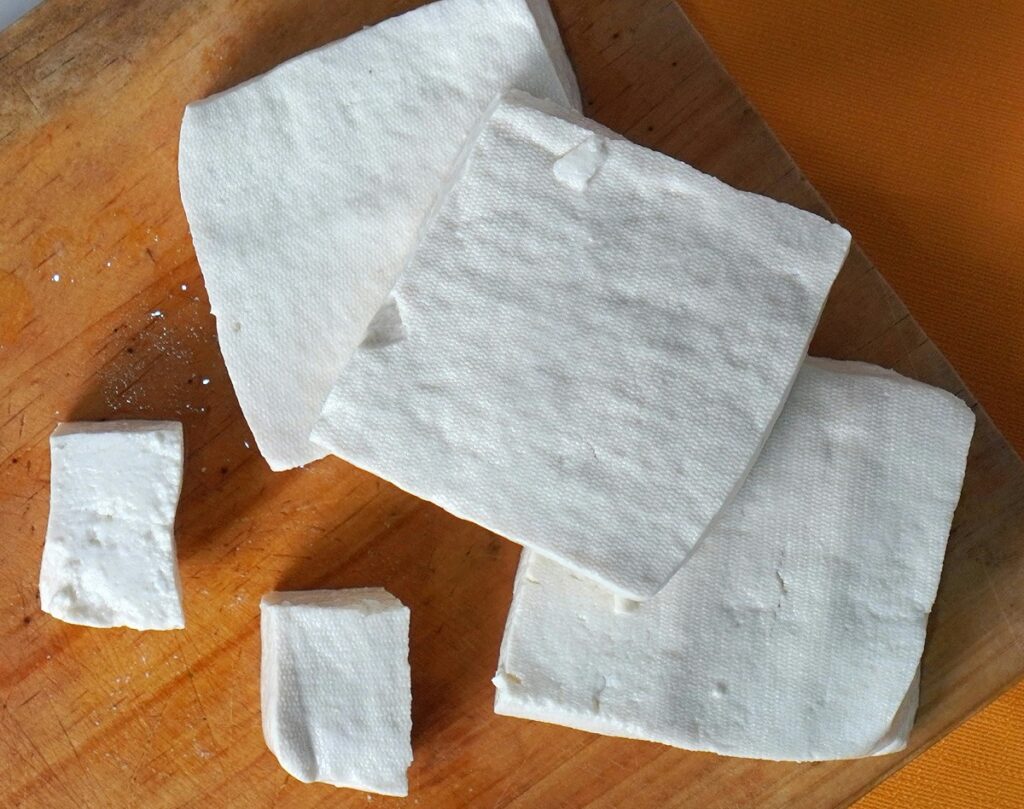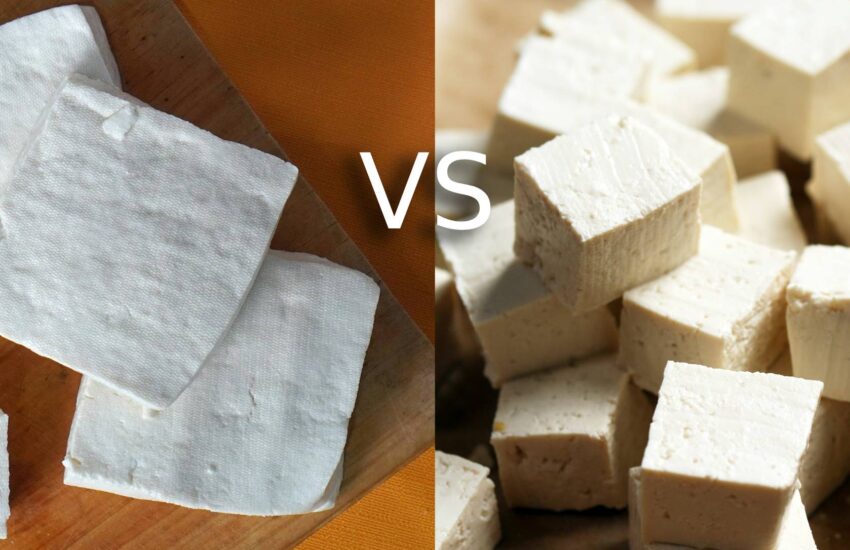When it comes to plant-based or dairy-based protein sources, tofu and paneer are two popular options in many vegetarian and vegan diets. Both offer a variety of health benefits, but there are key differences in their nutritional value, preparation methods, and health effects. In this comparison, we’ll break down the aspects of tofu and paneer to help you understand which might be healthier for your specific dietary needs. Accordingly Mohit Tandon Burr Ridge, Tofu vs Paneer : Which is Healthier ?
1. What is Tofu?
Tofu, also known as bean curd, is a food made by coagulating soy milk and pressing the resulting curds into solid blocks. It originated in China over 2,000 years ago and is now a staple in vegetarian and vegan diets worldwide. Tofu is a versatile ingredient that can be cooked in many different ways, from stir-fries to soups and smoothies. – Mohit Tandon Burr Ridge
Nutritional Profile of Tofu
Tofu is primarily composed of protein, fat, and water, with very little carbohydrate content. Here’s a typical nutritional breakdown of tofu (for a 100g serving of firm tofu):
- Calories: 70-80 kcal
- Protein: 8g
- Fat: 4-5g
- Carbohydrates: 1-2g
- Fiber: 1g
- Calcium: 200-350mg (depends on whether it’s calcium-set)
- Iron: 1-3mg
- Magnesium: 30-40mg

2. What is Paneer?
Paneer, also known as Indian cottage cheese, is a fresh cheese made from curdling milk with an acidic substance like lemon juice or vinegar. It is widely used in South Asian cuisines and is a great source of protein for vegetarians who consume dairy.
Nutritional Profile of Paneer
Paneer is rich in protein and fat but contains less water content compared to tofu. Here’s a typical nutritional breakdown of paneer (for a 100g serving):
- Calories: 265-300 kcal
- Protein: 18g
- Fat: 20g
- Carbohydrates: 2-4g
- Calcium: 200-300mg
- Iron: 0.5-1mg
- Magnesium: 20-25mg

3. Protein Content: Tofu vs Paneer
One of the primary reasons people turn to tofu or paneer is their high protein content, but how do they compare?
- Tofu: Tofu is an excellent source of plant-based protein, offering about 8g of protein per 100g serving. As it is derived from soy, it contains all nine essential amino acids, making it a complete protein.
- Paneer: Paneer is also a rich source of protein, with approximately 18g of protein per 100g serving. However, unlike tofu, which is plant-based, paneer is made from milk, which means it’s an animal product.
In terms of protein content, paneer has more protein per serving than tofu. However, the protein in tofu is plant-based and more suitable for those following vegetarian or vegan diets.
4. Fat and Calories: Tofu vs Paneer
When it comes to fat content, the comparison between tofu and paneer is significant.
- Tofu: A 100g serving of firm tofu contains around 4-5g of fat. Tofu also contains a significant amount of unsaturated fat, which is considered heart-healthy.
- Paneer: Paneer is considerably higher in fat, containing about 20g of fat per 100g serving. Most of this fat comes from saturated fat, which can increase cholesterol levels and the risk of heart disease if consumed in excess.
In terms of calories, paneer is much higher in calories due to its higher fat content. If you’re looking to cut down on calories, tofu would be a better option.
5. Calcium and Iron: Tofu vs Paneer
Both tofu and paneer are good sources of calcium, an essential mineral for bone health.
- Tofu: Tofu can be a significant source of calcium, especially when it is set with calcium salts. Calcium-set tofu can provide up to 350mg of calcium per 100g serving.
- Paneer: Paneer also provides calcium, but typically around 200-300mg per 100g serving, depending on the method of preparation and the milk used.
In terms of iron, tofu has a slight advantage as it contains more iron than paneer. A 100g serving of tofu can provide up to 3mg of iron, while paneer offers only 0.5-1mg.
6. Health Benefits: Tofu vs Paneer
Tofu Health Benefits
- Heart Health: Tofu is a good source of polyunsaturated fats, especially omega-3 fatty acids, which are beneficial for heart health. It may help lower cholesterol levels and reduce the risk of heart disease.
- Bone Health: Tofu made with calcium salts can be a good source of calcium, essential for bone health.
- Weight Management: Due to its lower fat and calorie content, tofu is often recommended for weight management.
- Anti-inflammatory: The omega-3s in tofu can help reduce inflammation in the body.
Paneer Health Benefits
- High-Quality Protein: Paneer is a great source of protein, which is essential for muscle repair, growth, and overall body maintenance.
- Bone Health: Being a dairy product, paneer is naturally rich in calcium and can support bone density and strength.
- Muscle Building: Due to its high protein content, paneer is often favored by those looking to build muscle mass, including athletes and bodybuilders.
- Gut Health: Paneer contains probiotics that may help improve gut health by promoting beneficial bacteria in the digestive system.
7. Lactose Content: Tofu vs Paneer
One important consideration when choosing between tofu and paneer is lactose intolerance. Tofu is naturally lactose-free because it is made from soybeans, making it an excellent choice for those who are lactose intolerant or following a vegan diet.
On the other hand, paneer is a dairy product, and while it has less lactose than some other dairy products, it may still cause discomfort for individuals who are lactose intolerant. Some people may be able to tolerate paneer in small quantities, but for those with severe lactose intolerance, tofu would be a better option. – Mohit Tandon Burr Ridge
8. Dietary Considerations: Vegan vs Vegetarian
- Tofu: Tofu is an ideal choice for vegans, vegetarians, and those following plant-based diets since it is made from soybeans and contains no animal products.
- Paneer: Paneer is suitable for lacto-vegetarians who consume dairy but avoid other animal products. It is not suitable for vegans or those who are avoiding dairy products.
9. Environmental Impact: Tofu vs Paneer
The environmental impact of food production is a growing concern for many people. Tofu, being plant-based, generally has a lower carbon footprint compared to paneer, which is a dairy product.
- Tofu: Soybeans require less water and land compared to dairy farming, and the production of tofu emits fewer greenhouse gases than the production of dairy products like paneer.
- Paneer: The production of dairy products is resource-intensive, requiring significant amounts of water, land, and energy. Dairy farming also produces methane, a potent greenhouse gas, contributing to global warming.
In terms of environmental sustainability, tofu is a more eco-friendly option compared to paneer.
10. Conclusion: Which is Healthier?
Choosing between tofu and paneer depends on various factors, including dietary preferences, nutritional needs, and health goals. Here’s a quick summary to guide your decision:
- For Protein: Paneer provides more protein per serving, making it a better choice for those seeking higher protein intake, particularly for muscle building.
- For Heart Health: Tofu is lower in saturated fat and higher in unsaturated fats, making it a better option for heart health.
- For Weight Management: Tofu is lower in calories and fat, making it a better choice for those managing their weight.
- For Bone Health: Both tofu and paneer provide calcium, but tofu made with calcium salts can be a better option for vegans or those avoiding dairy.
- For Lactose Intolerance: Tofu is the better choice for those with lactose intolerance or those following a vegan diet.
- For Environmental Impact: Tofu has a smaller environmental footprint compared to paneer.
Ultimately, both tofu and paneer can be part of a healthy diet, depending on your nutritional needs and preferences. If you are following a plant-based diet, tofu would be the clear winner. However, if you are a lacto-vegetarian or need a higher protein intake, paneer may be a better fit for you.
